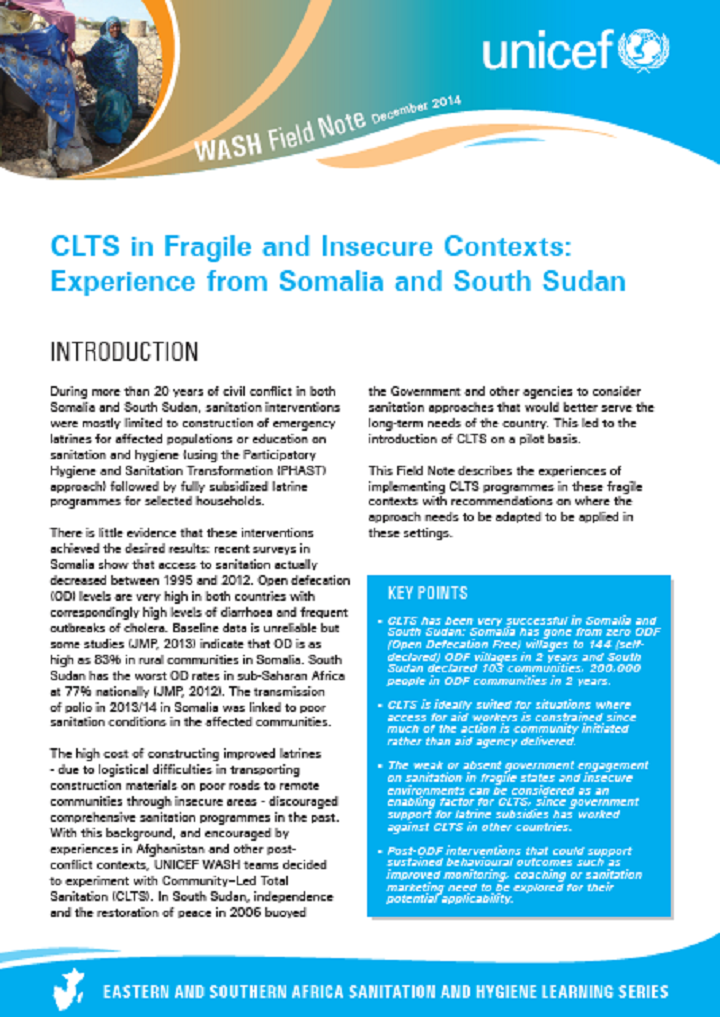CLTS in Fragile and Insecure Contexts: Experience from Somalia and South Sudan Balfour, N., Otieno, P., Mutai, C., Thomas, A. (2014)
During more than 20 years of civil conflict in both Somalia and South Sudan, sanitation interventions were mostly limited to construction of emergency latrines for affected populations or education on sanitation and hygiene, using the Participatory Hygiene and Sanitation Transformation (PHAST) approach, followed by fully subsidised latrine programmes for selected households.
There is little evidence that these interventions achieved the desired results: recent surveys in Somalia show that access to sanitation actually decreased between 1995 and 2012. Open defecation (OD) levels are very high in both countries with correspondingly high levels of diarrhoea and frequent outbreaks of cholera. Baseline data is unreliable but some studies indicate that OD is as high as 83% in rural communities in Somalia. South Sudan has the worst OD rates in sub-Saharan Africa at 77% nationally. The transmission of polio in 2013/14 in Somalia was linked to poor sanitation conditions in the affected communities. The high cost of constructing improved latrines – due to logistical difficulties in transporting construction materials on poor roads to remote communities through insecure areas – discouraged comprehensive sanitation programmes in the past.
With this background, and encouraged by experiences in Afghanistan and other post-conflict contexts, UNICEF WASH teams decided to experiment with Community–Led Total Sanitation (CLTS). In South Sudan, independence and the restoration of peace in 2006 buoyed the Government and other agencies to consider sanitation approaches that would better serve the long-term needs of the country. This led to the introduction of CLTS on a pilot basis.
This Field Note describes the experiences of implementing CLTS programmes in these fragile contexts with recommendations on where the approach needs to be adapted to be applied in these settings.
Bibliographic information
Balfour, N., Otieno, P., Mutai, C., Thomas, A. (2014). CLTS in Fragile and Insecure Contexts: Experience from Somalia and South Sudan UNICEF
Filter / Tags
English
Downloads
CLTS in Fragile and Insecure Contexts: Experience from Somalia and South Sudan
Type: application/pdf
Size: 0.86 MB

